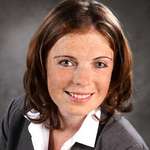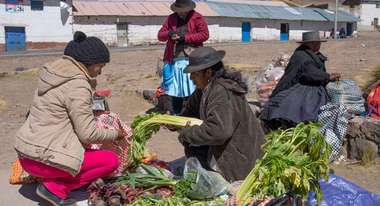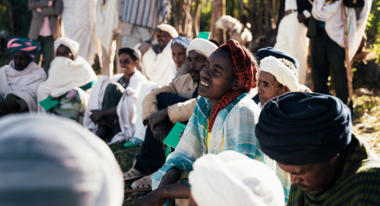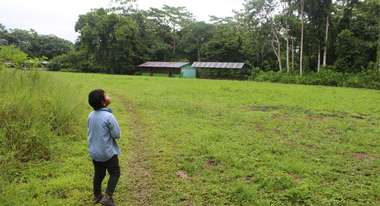Women in Liberia – still disadvantaged?
What's life like for women in Liberia? Welthungerhilfe staff Franziska Kerting about her personal experience working in the African country.
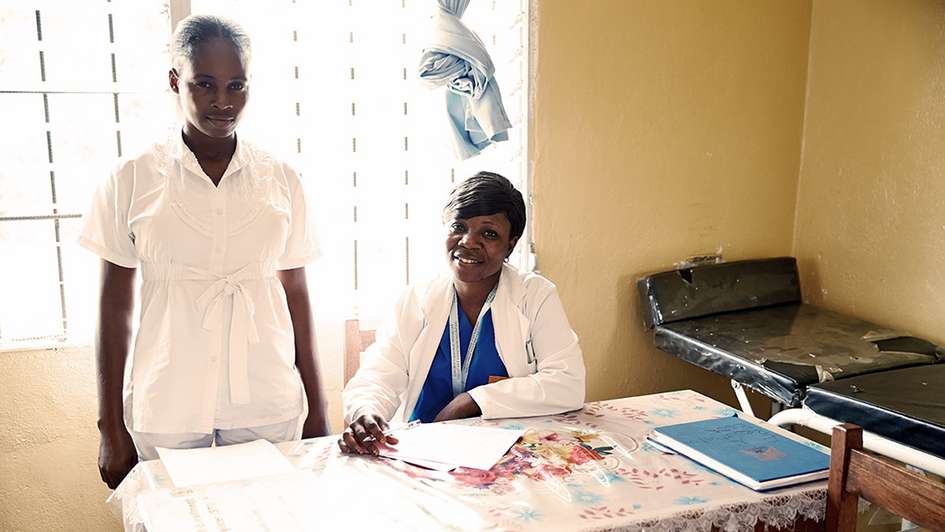
As a German woman, Liberia had always been one of the countries I wanted to visit, one of the main reasons being that Liberia had the first female president in Africa. This is surprising, considering that she was elected shortly after a 14-year-long civil war. Normally after a war one often finds strong male figures leading a country.
A woman becoming president might be due to the important role women’s movements had in ending the civil war. It was women who launched major peace campaigns and prayer sessions involving all major religious groups. They were protesting and they were forcing their leaders into peace negotiations to finalize the process. After 14 years of civil war they were tired, tired of a male dominated society, tired of war, violence and crime. They wanted peace, and I think President Ellen Johnson Sirleaf is representing this. She was meant to be a new start for Liberia. Thus, with a strong female leader in place, one might think that women are empowered in Liberia, however I would say the real picture is different.
Women are still disadvantaged compared to men
A female president provided a role model for many women here, however, especially in rural areas, women are still disadvantaged compared to men and often confronted with gender-based violence, fewer opportunities and major constraints in pursuing their education. Many women I have met had children quite early, making it difficult for them to pursue careers. Some are still forced to participate in coming-of-age rites within secret societies involving female genital mutilation; a practice that is often threatening to their lives and that poses health constraints on them later in life during pregnancy and child delivery. Also, access to knowledge on reproductive health and family planning is still lacking in Liberia.
But I also meet other women. Strong leaders who are keen on making a difference for their country. One person who is particularly inspiring to me is our WASH Officer, Anita. She is 29 years old and leads the WASH Department of Welthungerhilfe’s Office in Zwedru in Grand Gedeh County. She is determined to make a difference. Working with an all-male team she has strong leadership skills. While working in Zwedru her husband and mother take care of their kids in Monrovia. She is living the dream – having both a family and a career – which is inspiring to me and to women who look up to her in the field. Then there are those women I met at Medica Mondiale, a German organization that is actively working on gender rights. They are a major partner of Welthungerhilfe in the implementation of our Recovery and Reintegration Programme in the South East of Liberia. They fight gender-based violence, accompanying survivors in court and providing safe places for women, as well as psycho-social counselling. Medica Mondiale is a major player in Liberia in the fight for equal opportunities for women. Even at government offices, you find strong woman leaders. Some came from the women’s movement, some were inspired and pushed by the president, and others worked their way up. Women in high positions are there, however they still face challenges.
What challenges have I faced as a foreign woman in Liberia?
So one might ask, what challenges have I faced as a foreign woman in Liberia? To be honest, I do not feel there are any. I arrived here in January and so far have been treated with respect and appreciation. I am not sure if it is because I am a foreign woman or because of my position within Welthungerhilfe, but people are used to female leadership and do not question me, as might be expected. Certainly Liberians expect a 27 year-old woman to be married and to have children, which I do not have, so a lot of interesting discussions come up around this issue. But they listen, accept and as much as I can say, understand. As a strong advocate for gender mainstreaming, my male colleagues are sometimes frustrated with me when I ask again and again: “Is there no woman who can do it?” or “Did you consider what this means for women in the community?” However, I am seeing changes already, they are coming prepared now, always waiting for the question to pop-up and ready to answer. So in a way everyone is aware of the challenges that women face in Liberia and they just need people like Anita, the women of Medica Mondiale, and the president to take a lead and remind them to make a difference.
Welthungerhilfe in Liberia: Welthungerhilfe began its engagement in Liberia in 2003. Around 30 projects have been implemented with a total budget of approximately 50 million Euro. Initially Welthungerhilfe’s engagement consisted of emergency-relief and the rehabilitation of essential social-infrastructure. With the evolution of Liberia’s national development plan, Welthungerhilfe’s projects became more development-oriented with long-term goals in infrastructure, agriculture, income-generating activities, food & nutrition security, and WASH. Welthungerhilfe is currently implementing 5 development projects, 3 of which are dedicated to Ebola response, with a total funding pool of 24 Million Euros in two major areas – the South East and Greater Monrovia (Montserrado and Bomi Counties). Over the yearsWelthungerhilfe has established good partnerships with Government Ministries, Community Based Organizations, Farmer’s Unions, local NGOs as well as other international NGOs in Liberia.




